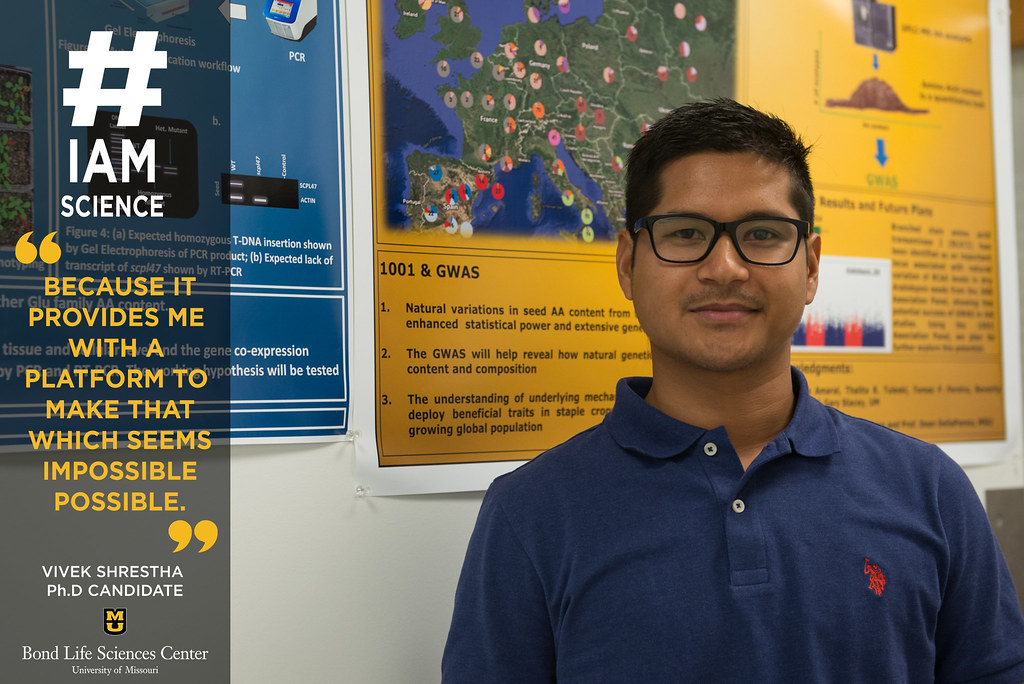
By Allison Scott | Bond Life Sciences Center
“#IAmScience because it provides me with a platform to make that which seems impossible possible.”
Agriculture is a mainstay in Nepal, where Vivek Shrestha was born and raised. He grew up in a small farming family, but he was surprised that although a significant portion of the country was involved with agriculture, food insecurity was prevalent.
“Nepal is a small, developing nation that is naturally beautiful,” Shrestha said. “Agriculture is huge, but still a lot of people are food insecure.”
Shrestha saw this need and decided to study plant sciences as an undergraduate at Tribhuvan University in Nepal. From there, he earned his master’s degree from South Dakota State University before coming to Mizzou to pursue his Ph.D.
“The overall goal of my study is to understand the genetic architecture of seed amino acid composition,” Shrestha said. “Seed amino acid composition is a complex metabolic trait and, despite having tremendous importance in biofortification efforts in seed crops, the underlying genetics are not clearly understood.”
Currently, Shrestha works in Dr. Ruthie Angelovici’s lab at Bond LSC studying the trait to better grasp its genetic breakdown.
“The {research} quality of amino acids has a tradeoff with the quantity, which makes it more challenging,” Shrestha said. “However, our research is of paramount importance because it has millions of beneficiaries.”
Shrestha’s research helps not only with food stability in places like Nepal, but also in cutting costs for the livestock feed industry in developed nations like the United States.
“Maize is a huge part of the feed industry for the United States,” Shrestha said.
This dual interest makes Shrestha’s work that much more rewarding. Although the amino acids are complex — having multiple cellular processes and interactions — the complexity gives Shrestha motivations and excitement in what he does.
“Every day is a fresh, new day for me to explore and enjoy science,” Shrestha said.

